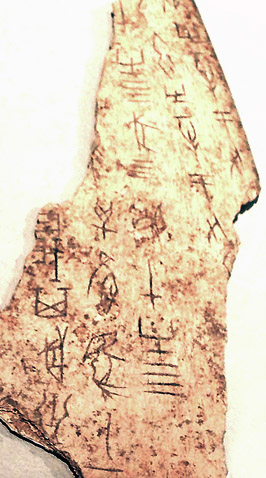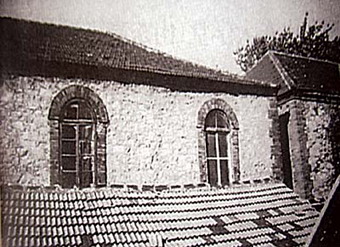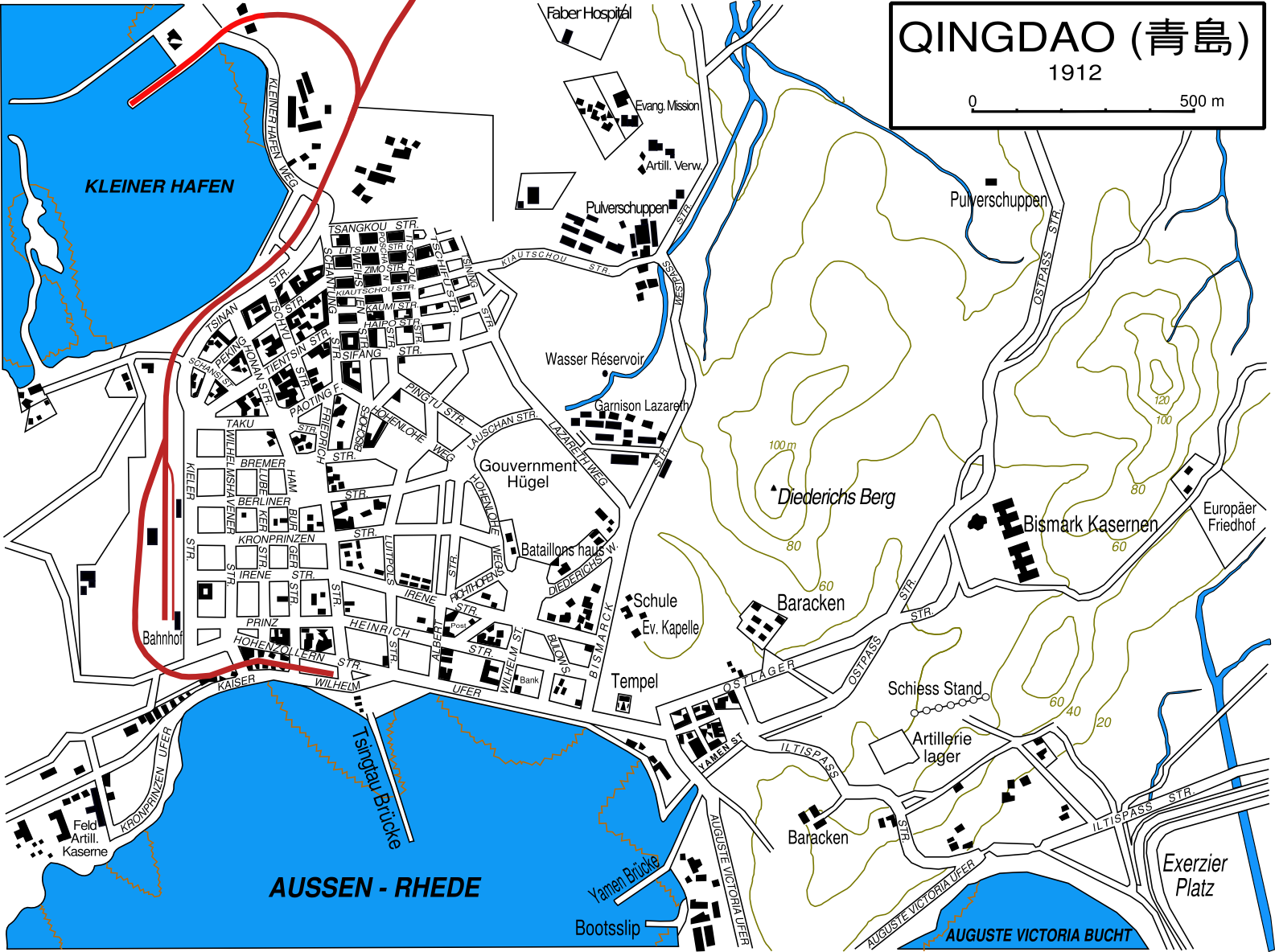|
Chao Zhefu
Chao Zhefu (; 3 December 1894 – 13 December 1970) was a Chinese educator and politician. He was born in Qingfeng County, Zhili province (now in Henan), in 1894. He served as a Governor of Pingyuan Province from 1949 to 1952. After Pingyuan was abolished in 1952, he became the Vice-Governor of Shandong Province in 1953. He served as the president of Shandong University in Qingdao from 1956 to 1958. He died in Jinan Jinan is the capital of the province of Shandong in East China. With a population of 9.2 million, it is one of the largest cities in Shandong in terms of population. The area of present-day Jinan has played an important role in the history of ... in 1970. References 1894 births 1970 deaths Presidents of Shandong University Political office-holders in Shandong Vice-governors of Shandong {{academic-administrator-stub ... [...More Info...] [...Related Items...] OR: [Wikipedia] [Google] [Baidu] |
Qingfeng County
Qingfeng County is a county located in the northeast of Henan province, bordering the provinces of Hebei to the northwest and Shandong to the east. It is under the administration of the prefecture-level city of Puyang. In the Han dynasty, Dunqiu County () was located somewhere near this area, possibly to the southwest of the modern day county. At the time, it was a part of Dong Commandery (). Cao Cao was made governor of Dunqiu County, following his assignment as ''Captain of the Northern District'' () of Luoyang (the capital at that time). Administrative divisions , this county is divided to 5 towns and 12 townships. ;Towns ;Townships Climate References *Romance of the Three Kingdoms/Chapter 1 *Cao Cao Cao Cao (; ; ; 15 March 220), courtesy name Mengde, was a Chinese statesman, warlord, and poet who rose to power during the end of the Han dynasty (), ultimately taking effective control of the Han central government. He laid the foundation f ... County-level ... [...More Info...] [...Related Items...] OR: [Wikipedia] [Google] [Baidu] |
Zhili
Zhili, alternately romanized as Chihli, was a northern administrative region of China since the 14th century that lasted through the Ming dynasty and Qing dynasty until 1911, when the region was dissolved, converted to a province, and renamed Hebei in 1928. History The name ''Zhili'' means "directly ruled" and indicates regions directly ruled by the imperial government of China. - See Jeremiah Jenne's statements. Zhili province was first constituted during the Ming dynasty when the capital of China was located at Nanjing along the Yangtze River. In 1403, the Ming Yongle Emperor relocated the capital to Beiping, which was subsequently renamed Beijing.Susan Naquin, ''Peking: Temples and City Life, 1400-1900'', p xxxiii The region known as North Zhili was composed of parts of the modern provinces of Hebei, Henan, Shandong, including the provincial-level municipalities of Beijing and Tianjin. There was another region located around the "reserve capital" Nanjing known as South Zhil ... [...More Info...] [...Related Items...] OR: [Wikipedia] [Google] [Baidu] |
Henan
Henan; alternatively Honan is a province in Central China. Henan is home to many heritage sites, including Yinxu, the ruins of the final capital of the Shang dynasty () and the Shaolin Temple. Four of the historical capitals of China, Luoyang, Anyang, Kaifeng and Zhengzhou, are in Henan. While the province's name means 'south of the river', approximately a quarter of the province lies north of the Yellow River. With an area of , Henan covers a large part of the fertile and densely populated North China Plain. Its neighboring provinces are Shaanxi, Shanxi, Hebei, Shandong, Anhui, and Hubei. Henan is China's third-most populous province and the most populous among inland provinces, with a population of over 99 million as of 2020. It is also the world's seventh-most populous administrative division; if it were a country by itself, Henan would be the 17th-most populous in the world, behind Egypt and Vietnam. People from Henan often suffer from regional discrimination ... [...More Info...] [...Related Items...] OR: [Wikipedia] [Google] [Baidu] |
Pingyuan Province
Pingyuan () was a former province of the People's Republic of China that existed between 1949 and 1952. Its capital was Xinxiang, now in Henan province. History Pingyuan Province was established on August 20, 1949, comprising adjoining prefectures in the provinces of Henan and Shandong: *Xinxiang, Henan (along with then-separate urban centre Xinxiang City) *Puyang, Henan *Anyang, Henan (along with then-separate urban centre Anyang City) *Heze, Shandong * Huxi, Shandong *Liaocheng, Shandong Pan Fusheng was the first Communist Party Chief of the province, and Chao Zhefu was its only governor. In March 1950, a number of peasants and cattle froze to death when transporting grain to government storage in Puyang prefecture. Pan took partial responsibility for the "Puyang Incident" and was demoted to deputy party chief. He was replaced by Wu De. The province was abolished on November 15, 1952. Its component territories were returned to their original provinces - with the exception ... [...More Info...] [...Related Items...] OR: [Wikipedia] [Google] [Baidu] |
Shandong
Shandong is a coastal Provinces of China, province in East China. Shandong has played a major role in Chinese history since the beginning of Chinese civilization along the lower reaches of the Yellow River. It has served as a pivotal cultural and religious center for Taoism, Chinese Buddhism and Confucianism. Shandong's Mount Tai is the most revered mountain of Taoism and a site with one of the longest histories of continuous religious worship in the world. The Buddhist temples in the mountains south of the provincial capital of Jinan were once among the foremost Buddhist sites in China. The city of Qufu was the birthplace of Confucius, and later became the center of Confucianism. Shandong's location at the intersection of ancient and modern north–south and east–west trading routes has helped establish it as an economic center. After a period of political instability and economic hardship beginning in the late 19th century, Shandong has experienced rapid growth in recent de ... [...More Info...] [...Related Items...] OR: [Wikipedia] [Google] [Baidu] |
Shandong University
Shandong University (; SDU) is a public university in Jinan, Shandong, China. It is affiliated with the Ministry of Education (China), Ministry of Education of China. The university is part of Project 211, Project 985, and the Double First-Class Construction. The oldest of Shandong University's precursor institutions, Cheeloo University, was founded by American and English mission agencies in the late 19th century (as Tengchow College of Liberal Arts in Penglai District, Penglai). Tengchow College was the first modern institution of higher learning in China. Shandong University derives its official founding date from the Imperial Shandong University established in Jinan in November 1901 as the second modern national university in the country. Shandong University has eight campuses, all but two of which are located in the provincial capital city of Jinan. The newest of these campuses is located to the northeast of the port city of Qingdao. History Traditional Learning in Shand ... [...More Info...] [...Related Items...] OR: [Wikipedia] [Google] [Baidu] |
Qingdao
Qingdao, Mandarin: , (Qingdao Mandarin: t͡ɕʰiŋ˧˩ tɒ˥) is a prefecture-level city in the eastern Shandong Province of China. Located on China's Yellow Sea coast, Qingdao was long an important fortress. In 1897, the city was ceded to Germany. For the Germans Qingdao (Tsingtau) was a strategic trade center, port and base for its East Asia Squadron, allowing the German navy to project dominance in the Pacific. In 1914, following the outbreak of World War I, Japan occupied the city and the surrounding province during the Siege of Tsingtao. In 1915, China agreed to recognize Japan's special position in the territory through what became known as the Twenty-One Demands. In 1918, the Chinese government, under the control of the warlord Duan Qirui, secretly agreed to Japanese terms in exchange for a loan. Following the First World War, during the Paris Peace Conference, Japan secured agreements with the Allied powers to recognize its claim to the areas in Shandong, which in ... [...More Info...] [...Related Items...] OR: [Wikipedia] [Google] [Baidu] |
Jinan
Jinan is the capital of the province of Shandong in East China. With a population of 9.2 million, it is one of the largest cities in Shandong in terms of population. The area of present-day Jinan has played an important role in the history of the region from the earliest beginnings of civilization and has evolved into a major national administrative, economic, and transportation hub. The city has held Sub-provincial city, sub-provincial administrative status since 1994. Jinan is often called the "City of Springs" for its famous 72 Artesian aquifer, artesian springs. Jinan is one of the top 35 cities in the world for scientific research as tracked by the Nature Index according to the Nature Index 2023 Science Cities. The city is home to List of universities and colleges in Shandong, several major universities, including Shandong University, Shandong, Shandong Normal University, Shandong Normal, Shandong Jianzhu University, Shandong Jianzhu, University of Jinan, Qilu University o ... [...More Info...] [...Related Items...] OR: [Wikipedia] [Google] [Baidu] |
Hua Gang
Hua Gang (; 1903–1972) was the president of Shandong University in Qingdao from February 1951 until August 1955. References Citations Bibliography * 1903 births 1972 deaths Presidents of Shandong University Chinese political philosophers Writers from Quzhou Educators from Quzhou Victims of the Cultural Revolution People's Republic of China politicians from Zhejiang 20th-century Chinese philosophers Politicians from Quzhou 20th-century Chinese translators 20th-century Chinese historians Historians from Zhejiang Inmates of Qincheng Prison {{China-philosopher-stub ... [...More Info...] [...Related Items...] OR: [Wikipedia] [Google] [Baidu] |
Cheng Fangwu
Cheng Fangwu (; August 24, 1897 – 17 May 1984) was a top level politician in the Chinese Communist Party (CCP). Before joining the party, he was active as an author of the new literature and a translator. After joining the CCP, he quickly rose through the ranks to become in charge of the party's political education apparatus. After participating in the Long March, he established a mobile university to instruct Communist soldiers and party members as they waged a guerrilla war against the Japanese during the Second Sino-Japanese War. After the Communist victory in the Chinese Civil War, Cheng became President of Shandong University and helped establish Renmin University. He was purged in 1974 during the Cultural Revolution but given a sinecure translating Marx and Engels' texts into Chinese. Cheng was rehabilitated in 1978, and spent the final years of his life as President of Renmin University. Biography Cheng Fangwu was born in Xinhua County, Hunan in 1897. He went to Japan ... [...More Info...] [...Related Items...] OR: [Wikipedia] [Google] [Baidu] |
1894 Births
Events January * January 4 – A military alliance is established between the French Third Republic and the Russian Empire. * January 7 – William Kennedy Dickson receives a patent for motion picture film in the United States. * January 9 – New England Telephone and Telegraph installs the first battery-operated telephone switchboard, in Lexington, Massachusetts. February * February 12 – French anarchist Émile Henry sets off a bomb in a Paris café, killing one person and wounding twenty. * February 15 ** In Korea, peasant unrest erupts in the Donghak Peasant Revolution, a massive revolt of followers of the Donghak movement. Both China and Japan send military forces, claiming to come to the ruling Joseon dynasty government's aid. ** French anarchist Martial Bourdin dies of an accidental detonation of his own bomb, next to the Royal Observatory, Greenwich, in London, England. March * March 1 – The Local Government Act (coming into ... [...More Info...] [...Related Items...] OR: [Wikipedia] [Google] [Baidu] |
1970 Deaths
Events January * January 1 – Unix time epoch reached at 00:00:00 UTC. * January 5 – The 7.1 1970 Tonghai earthquake, Tonghai earthquake shakes Tonghai County, Yunnan province, China, with a maximum Mercalli intensity scale, Mercalli intensity of X (''Extreme''). Between 10,000 and 14,621 are killed and 30,000 injured. * January 15 – After a 32-month fight for independence from Nigeria, Biafran forces under Philip Effiong formally surrender to General Yakubu Gowon, ending the Nigerian Civil War. February * February 1 – The Benavídez rail disaster near Buenos Aires, Argentina (a rear-end collision) kills 236. * February 10 – An avalanche at Val-d'Isère, France, kills 41 tourists. * February 11 – ''Ohsumi (satellite), Ohsumi'', Japan's first satellite, is launched on a Lambda-4 rocket. * February 22 – Guyana becomes a Republic within the Commonwealth of Nations. * February – Multi-business Conglomerate (company), conglomerate Virgin Group is founded as a ... [...More Info...] [...Related Items...] OR: [Wikipedia] [Google] [Baidu] |






